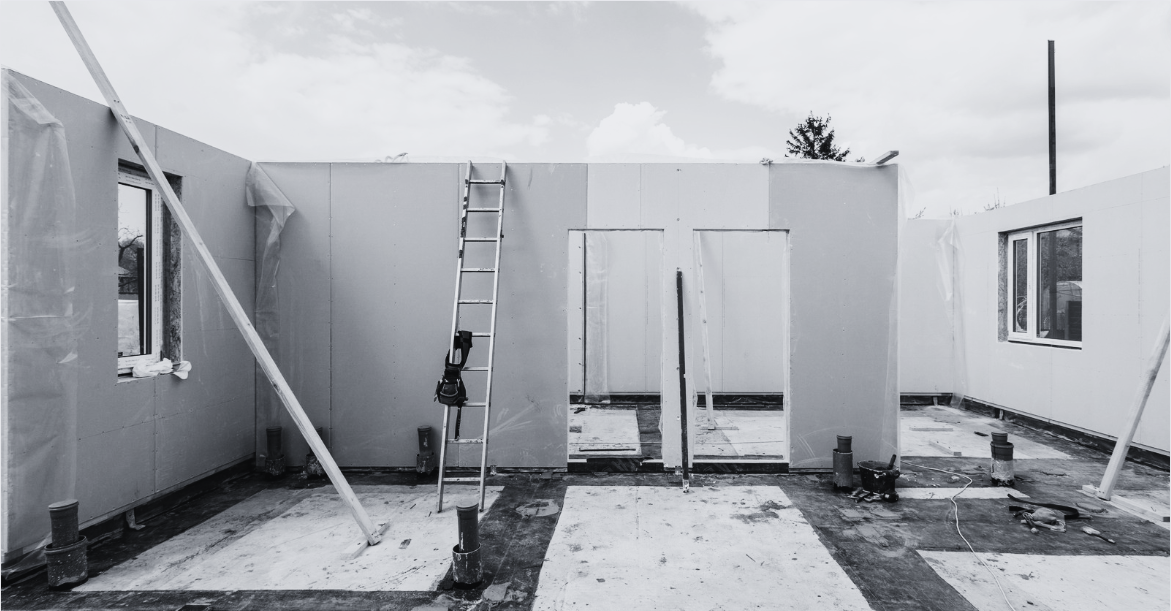
Modular construction is a method of delivering new housing schemes that has attracted equal parts fascination and scepticism from real estate investors.
On the one hand, the prospect of funding a scheme where the building modules are manufactured off-site in a controlled factory environment, transported and then assembled on-site offers some important advantages.
Chief among these is speed. Compared to the longer linear programme of traditional site-build construction, modular projects allow for on-site groundworks, laying of foundations and infrastructure works to take place concurrently with the manufacture of the modules off-site. These projects also typically require less scaffolding, which means a lower risk of weather-related delays. A 30-50% reduction in time taken doesn’t just mean substantially higher output for an industry that continuously lags behind government targets and national demand. It also means a quicker return on investment for the funders.
Other incentives include cost and quality. For the former, the supply chain’s pricing is more typically fixed and construction in a controlled environment helps mitigate unforeseen circumstances, reducing the risk of build cost inflation. For the latter, factory-style quality assurance and control processes enable the earlier detection of defects and their more immediate correction. Both of these factors have an obvious appeal for funders seeking to maximise the value of their investment.
Modular construction also aligns with investors’ ESG priorities. Waste reduction, energy efficiency and a reduced carbon footprint are just a few environmental benefits of MMC. Off-site construction reduces the impact of development work on local communities and the pollution created by heavy goods vehicles transporting raw materials.
MMC has lasting social and environmental benefits throughout a building’s lifecycle, starting with construction. Up to 30% of the waste produced by conventional construction methods ends up in landfill. Modular construction, however, takes a meticulous approach to manufacturing, with each ‘module’ of the development measured, cut, and fitted to the exact shape and size needed, an approach which significantly reduces material waste during construction in comparison to traditional methods. A more streamlined approached to building, focused on maximising speed of delivery and efficiency, also reduces the duration and intensity of construction, in turn reducing the carbon footprint of a new development.
Once built, modular schemes can be designed to optimise the thermal performance, natural lighting, and ventilation of their surroundings, while incorporating renewable energy sources and smart technologies. Existing sites can also be easily modified, expanded, relocated, or dismantled, depending on the functional and spatial requirements of inhabitants. By enhancing flexibility and adaptability, modular construction extends the lifespan and usability of buildings, ultimately reducing the need for demolition and costly reconstruction.
Finally, the social and economic benefits of modular are long-lasting. In addition to creating high-quality jobs, MMC has a crucial role to play in tackling the UK’s housing crisis. Optimisation and efficiency during the construction and development phases ultimately make it a more cost-effective and faster option for developing the high-quality homes we urgently need to build.
Why the scepticism, then? It stems in large part from the perceived risk of project failure, in the event that the highly specialised developers and contractors on whom the schemes rely, run into financial distress and cease trading.
There have been high-profile instances of large players from the relatively small pool of modular construction specialists going insolvent, having not been able to grow their business to sufficient scale in what is still an early-stage and immature market. For example, Urban Splash’s modular housing business went into administration in early 2022, following a series of production faults that caused stakeholders to lose confidence.
When looking at our inaugural modular construction deal, a £105.2 million Green Loan in partnership with QuadReal Property Group to fund the development of a BTR multifamily building in North Acton, we carefully explored how we might mitigate the risk of contractor insolvencies as a crucial step in reducing downside risk for our investors.
The first and most fundamental decision you can take as a lender is in credit selection. Knowing your customer is key. It’s critical that you are backing borrowers and developers with the proven experience and ability to successfully manage a modular construction build. With our recent North Acton loan, we knew that the scheme had a responsible and highly effective developer and contractor in Tide Construction. Their 3D volumetric modular affiliate company, Vision Modular Systems, is underpinned by robust research and testing and they have a strong track record of delivering schemes quickly and to an exceptionally high standard. For example, Tide recently completed a 50-story BTR co-living development in Croydon, which is the tallest modular building in Europe.
But there are also safeguards that lenders can write into the legal structuring of the transaction to deal with the specific risks of a large exposure to the off-site manufacturing Precede is used to providing bespoke sophisticated solutions when writing complex loans. Greater familiarity with these protections in the wider financing community is an important step towards getting more funders comfortable with the distinctive risk profile of modular construction projects. This, in turn, will increase the availability of funding, boosting the volume of modular schemes and delivering the benefits of reduced impact on local communities, greater scale and commercial resilience for contractors and higher output for the industry as a whole.
As long as the unique risks of modular construction are managed properly, it should continue to drive attractive funding opportunities in the UK development market.

















